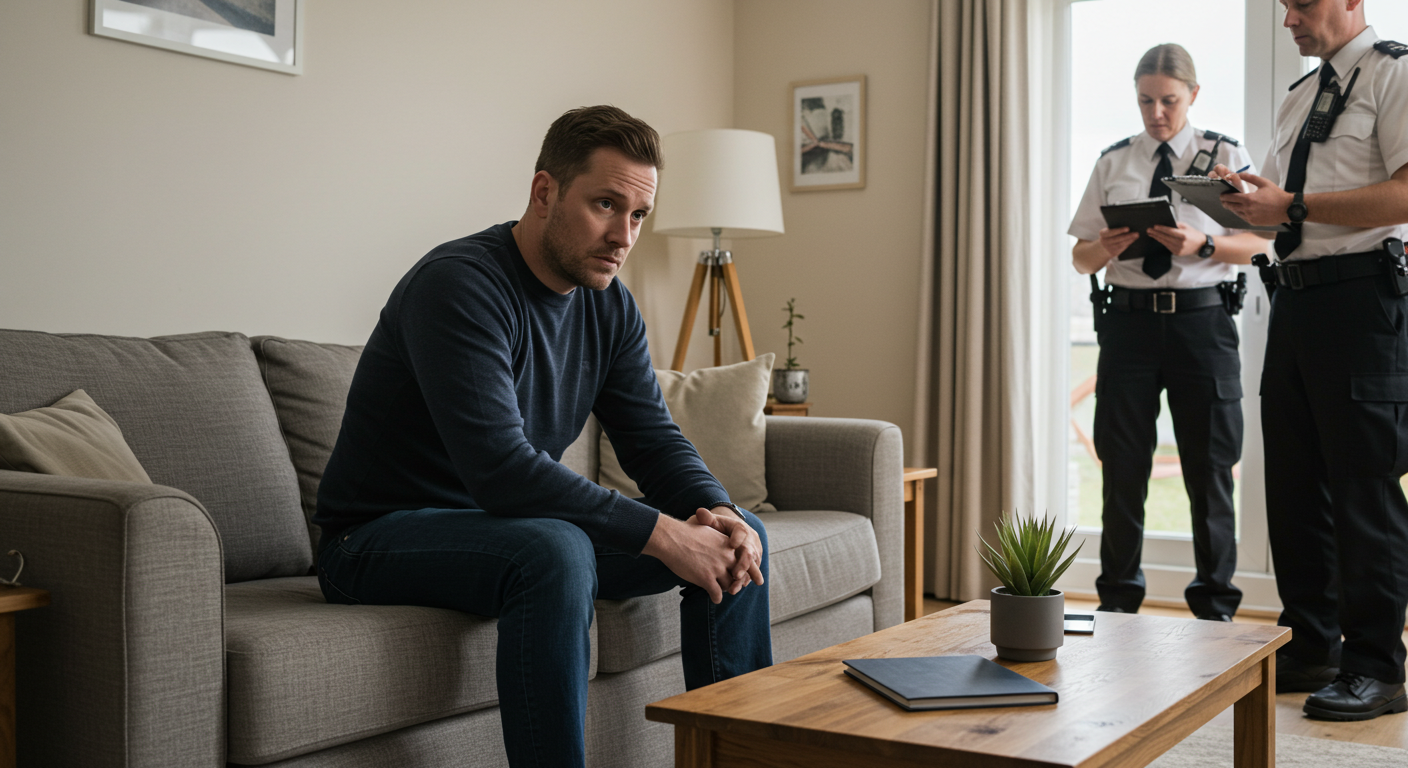How False Accusations Impact Violent Crime Cases

How False Accusations Impact Violent Crime Cases
False accusations in violent crime cases can have far-reaching consequences, impacting not only the individuals involved but also the criminal justice system as a whole. It is crucial to understand how false accusations impact violent crime cases and the factors that contribute to them in order to address and mitigate their effects.
False accusations refer to wrongful allegations made against individuals for crimes they did not commit. These accusations can arise due to various factors such as mistaken identity, personal vendettas, mental health issues, or the desire for attention or financial gain.
In the context of violent crime cases, false accusations can have significant impacts. Firstly, they can lead to a misallocation of resources, diverting investigative efforts towards innocent individuals instead of actual perpetrators.
This not only wastes valuable time and resources but also delays justice for victims and allows the real criminals to remain at large. False accusations can cause damage to the credibility of the criminal justice system as a whole. When innocent individuals are wrongly accused and later exonerated, it erodes public trust in the system and can lead to scepticism regarding all allegations.
Handling false accusations presents numerous challenges. The presumption of innocence, a fundamental principle in criminal law, makes it essential to approach each case with impartiality and gather evidence to establish guilt or innocence.
However, detecting false accusations can be difficult as they may involve intricate webs of lies and manipulation. This can create complexities for law enforcement, prosecutors, and defence attorneys in determining the truth and ensuring justice is served.
To address false accusations in violent crime cases, several measures can be taken. Improving investigation procedures, such as conducting thorough background checks and corroborating evidence, can help reduce the risk of false accusations.
Supporting both victims and the accused throughout the legal process is crucial, providing appropriate resources and counselling to victims while ensuring the rights of the accused are protected.
Education and awareness campaigns can also play a role in highlighting the consequences of false accusations and promoting a more balanced understanding of the criminal justice system.
By understanding the impacts, challenges, and potential solutions related to false accusations in violent crime cases, it becomes possible to safeguard the integrity of the justice system and ensure that justice is served for all parties involved.
Understanding False Accusations in Violent Crime Cases

What Are False Accusations?
False accusations refer to allegations made against someone, accusing them of committing a crime when they are innocent. These claims can have significant impacts on individuals and the criminal justice system.
They are the act of making untrue claims or allegations against someone. The factors contributing to false accusations can include personal motives, mistaken identity, or coerced statements. When false accusations occur, they can result in the misallocation of resources, damage to the credibility of the accused, and implications for the criminal justice system.
To effectively handle false accusations, it is important to address the challenges they present, such as balancing the presumption of innocence and difficulties in detecting false claims. This can be done by improving investigation procedures, providing support for both victims and the accused, and raising awareness through education.
Impacts of False Accusations on Violent Crime Cases

Damage to Credibility
Damaging the credibility of individuals involved in violent crime cases can have severe consequences for both the victim and the accused. Here are a few ways in which false accusations can cause damage to credibility:
- Undermining trust: False accusations erode trust in the accuser, as well as in the criminal justice system itself.
- Lingering doubt: Even if an individual is proven innocent, the shadow of doubt created by false accusations may persist, affecting their reputation and future relationships.
- Impacting future cases: False accusations can make it harder for genuine victims to come forward, as their credibility may be questioned due to previous false allegations.
- Diverting resources: Investigations into false accusations cause damage to credibility by taking valuable time and resources away from legitimate cases, potentially hindering the pursuit of justice.
- Social stigma: Being falsely accused can lead to social isolation, damaged personal and professional relationships, and mental health issues.
Implications for the Criminal Justice System
False accusations in violent crime cases have serious implications for the criminal justice system. These implications, specifically the misallocation of resources, damage to credibility, and challenges in handling these cases, affect the efficient functioning of the system.
1. The misallocation of resources associated with false accusations diverts valuable investigative efforts and resources away from genuine cases. This diversion delays justice for victims, hindering the allocation of resources where they are truly needed.
2. False accusations also lead to damage to credibility, eroding trust in the criminal justice system. When false accusations arise, public confidence in the system diminishes, making it more difficult for genuine victims to come forward and seek justice.
3. Handling false accusations presents challenges for the criminal justice system. Distinguishing between genuine and false accusations is often a complex task. The presumption of innocence must be balanced with the need to protect victims and ensure that justice is served adequately.
Addressing false accusations requires implementing several measures. These include improving investigation procedures to better differentiate between false and genuine accusations. Additionally, providing support for both victims and the accused is crucial. Promoting education and awareness also plays a significant role in addressing false accusations.
Taking these measures is necessary to safeguard the integrity of the criminal justice system, especially in cases involving false accusations. By doing so, the system can ensure that justice is served efficiently and that victims receive the support they deserve.
Challenges in Handling False Accusations

Presumption of Innocence
The presumption of innocence is an integral pillar in the criminal justice system, a cornerstone that ensures fairness. This principle dictates that all individuals accused of a crime must be deemed innocent until proven guilty.
The importance of this principle lies in its ability to shield innocent individuals from false accusations and guarantee them a just trial. In cases of violent crimes, when false allegations arise, they not only undermine the presumption of innocence but also yield grave consequences.
These unfounded claims can tarnish the reputation and credibility of the accused, leading to a mistaken allocation of resources and a potential miscarriage of justice.
To tackle this pressing issue, it is crucial to enhance investigation procedures, offer support to both the victims and the accused, and foster education and awareness regarding the far-reaching impacts of false accusations.
Difficulties in Detecting False Accusations
Detecting false accusations in violent crime cases can be challenging due to difficulties in identifying inconsistencies and distinguishing between genuine and fabricated allegations. Lack of evidence or contradictory statements may further complicate the detection process, making it hard to uncover the truth.
Skilled false accusers can manipulate information, adding to the challenges faced by investigators.
Additionally, social and psychological factors, including the pressure to believe victims and the stigma surrounding doubting allegations, can complicate matters.
Therefore, overcoming these difficulties requires comprehensive training for law enforcement personnel to recognise signs of false accusations and effectively employ investigative techniques.
Addressing False Accusations in Violent Crime Cases

Improving Investigation Procedures
Improving investigation procedures is of utmost importance when it comes to addressing false accusations in violent crime cases. In order to achieve this, here are some crucial steps that can be taken:
- Enhance evidence collection protocols to ensure accurate and comprehensive documentation.
- Implement standardised interview techniques to minimise biases and increase the reliability of the information gathered.
- Strengthen forensic analysis procedures to significantly improve the accuracy of the results obtained.
- Establish thorough review processes to effectively identify any potential errors or inconsistencies that may arise.
- Provide specialised training to law enforcement officers on how to properly investigate and handle false accusations.
- Promote collaboration between law enforcement agencies and forensic experts to enhance investigative techniques and outcomes.
- Utilise the latest technology and advancements in forensic science to support investigations and significantly enhance the accuracy of findings.
Supporting Victims and the Accused
Supporting victims and the accused is crucial in handling false accusations in violent crime cases. It is essential to provide emotional and psychological support to both victims and the accused who have experienced trauma.
This includes access to counselling services and resources to help them navigate the legal process. By ensuring the rights and well-being of both parties, it is possible to achieve a more equitable and just resolution in cases involving false accusations of violent crimes.
This may involve providing fair and unbiased investigations, legal representation, and access to rehabilitative programs. By offering support to both victims and the accused, the justice system can work towards a more balanced and fair outcome.
Education and Awareness
Education and awareness play a crucial role in addressing false accusations in violent crime cases. By providing education on the dynamics and consequences of false accusations, individuals can better understand the impact it has on both the victims and the accused.
Awareness campaigns are essential to dispel myths and stereotypes surrounding false accusations, promoting a more balanced and informed perspective. The focus of education should be on teaching proper investigative procedures and techniques to law enforcement agencies, enabling them to effectively differentiate between genuine and false accusations.
By promoting education and awareness, society can work towards preventing false accusations and ensuring justice for all parties involved.
Notice: Informational Content Disclaimer
The content provided on this website, including articles, blog posts, and other informational materials, is intended for general informational purposes only. It is not intended as, and should not be considered, legal advice.
Visitors to this website should be aware that the information presented here is not a substitute for seeking legal advice from a qualified solicitor or legal professional. Each individual's legal situation is unique, and the information provided may not be applicable to specific circumstances.
If you require legal advice or have specific legal questions, we encourage you to contact us directly. Our experienced team of solicitors is here to assist you with your legal needs and provide tailored advice to address your concerns.
Please be advised that any communication through this website, including the use of contact forms or email, does not create a solicitor-client relationship. Confidential or time-sensitive information should not be sent through this website. To establish a solicitor-client relationship and discuss your legal matters in detail, please contact us for a consultation.
We strive to provide accurate and up-to-date information, but we make no representations or warranties regarding the accuracy, completeness, or suitability of the information contained on this website. We shall not be liable for any reliance placed on the information provided herein.
Thank you for visiting our website. We look forward to the opportunity to assist you with your legal needs.




